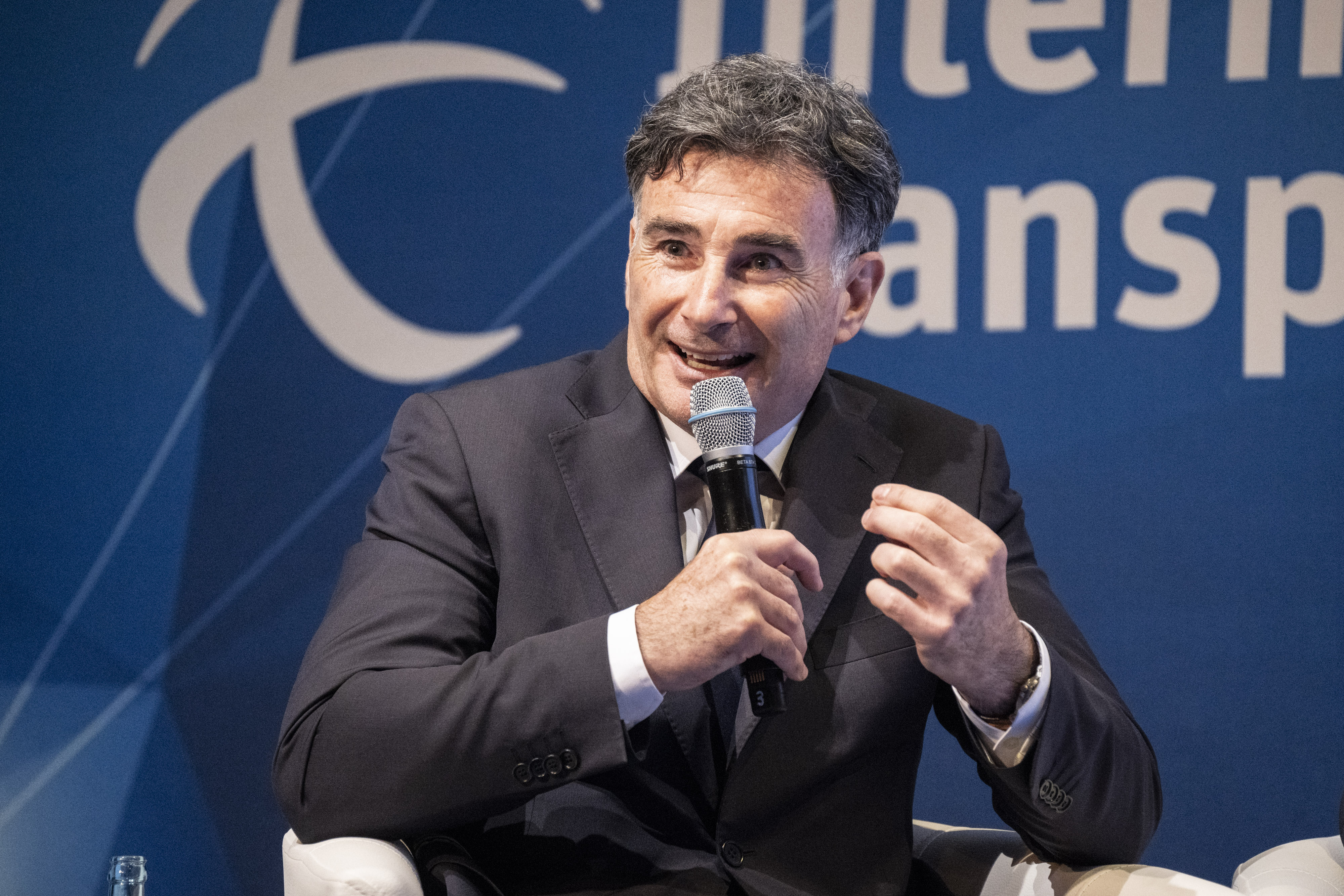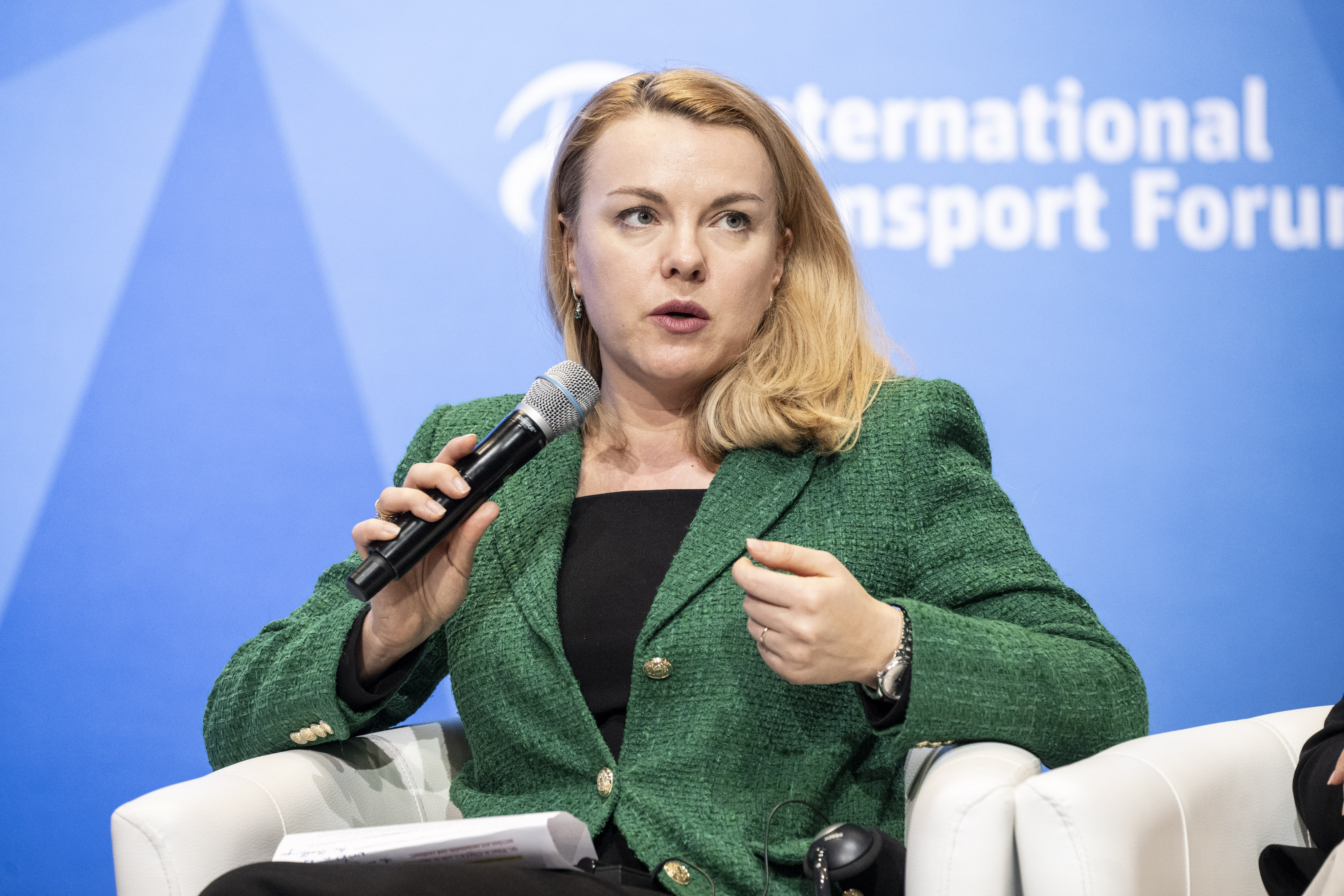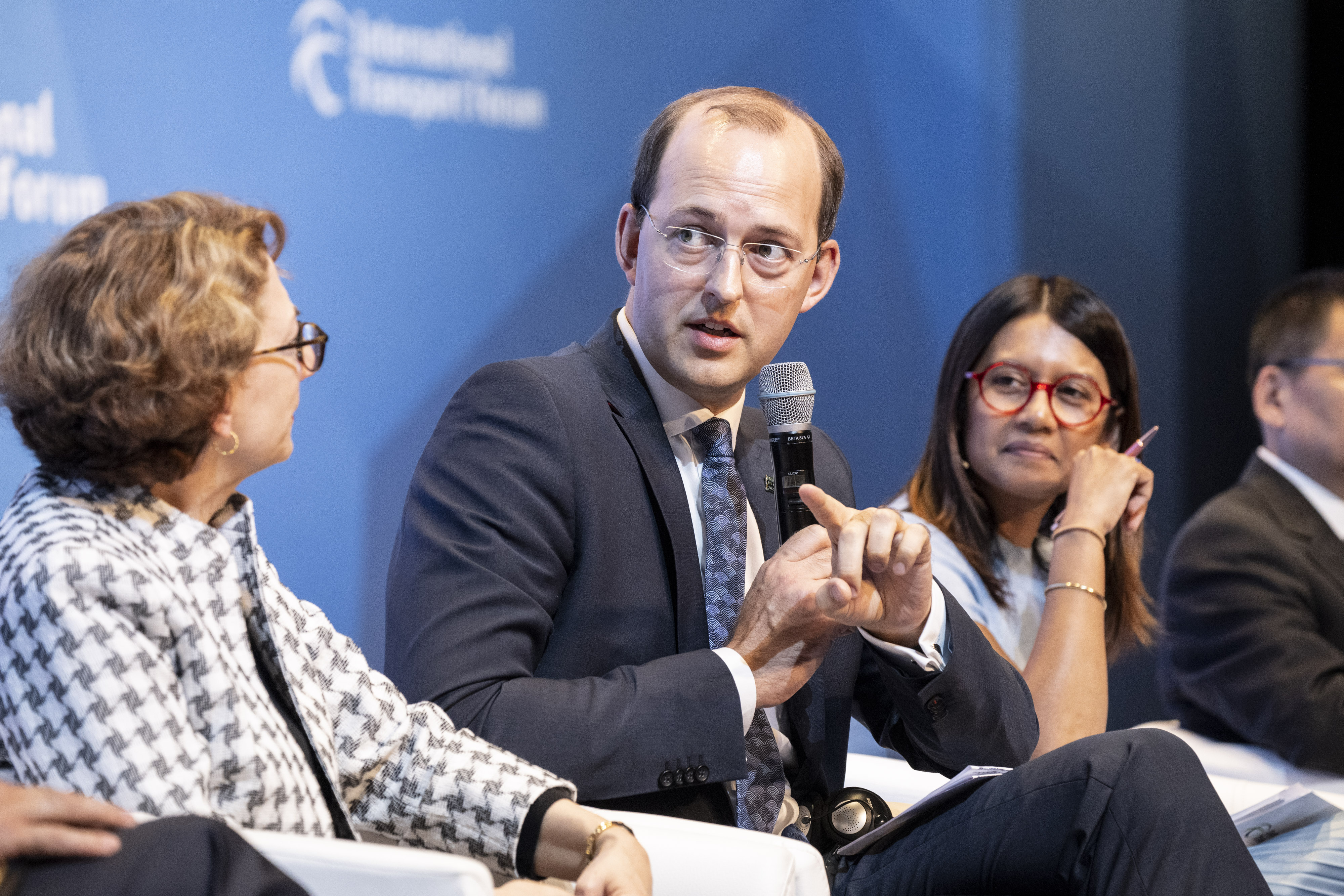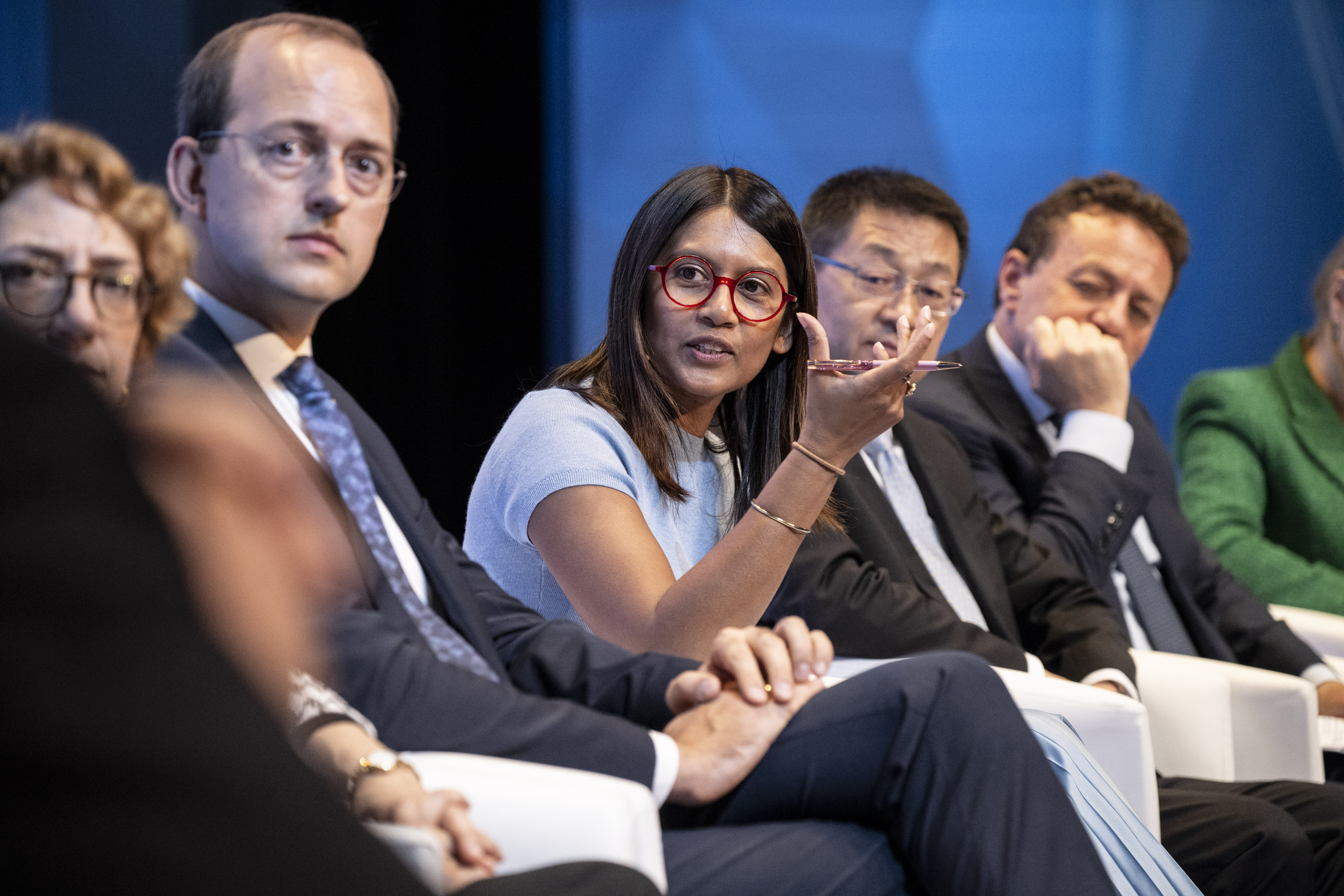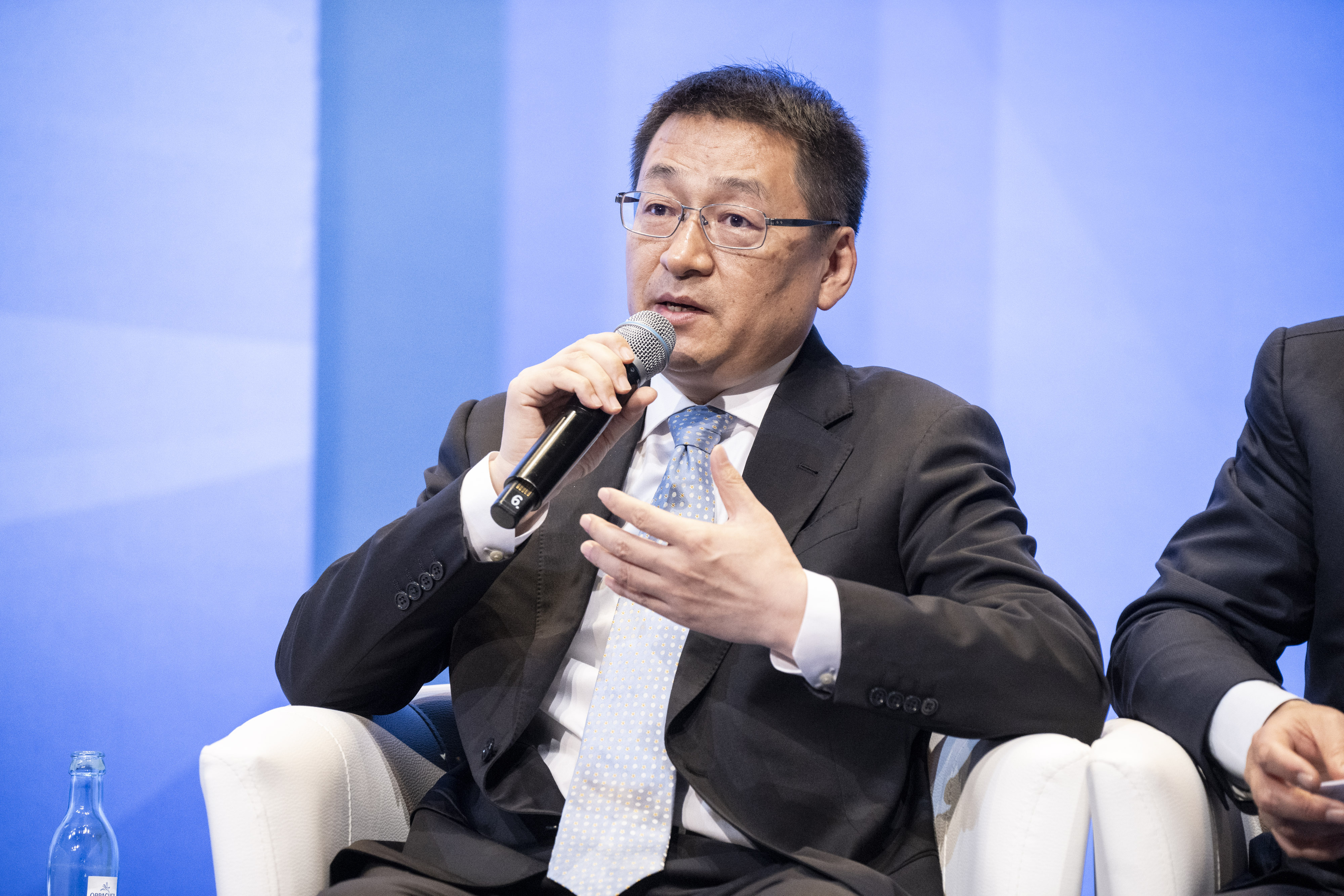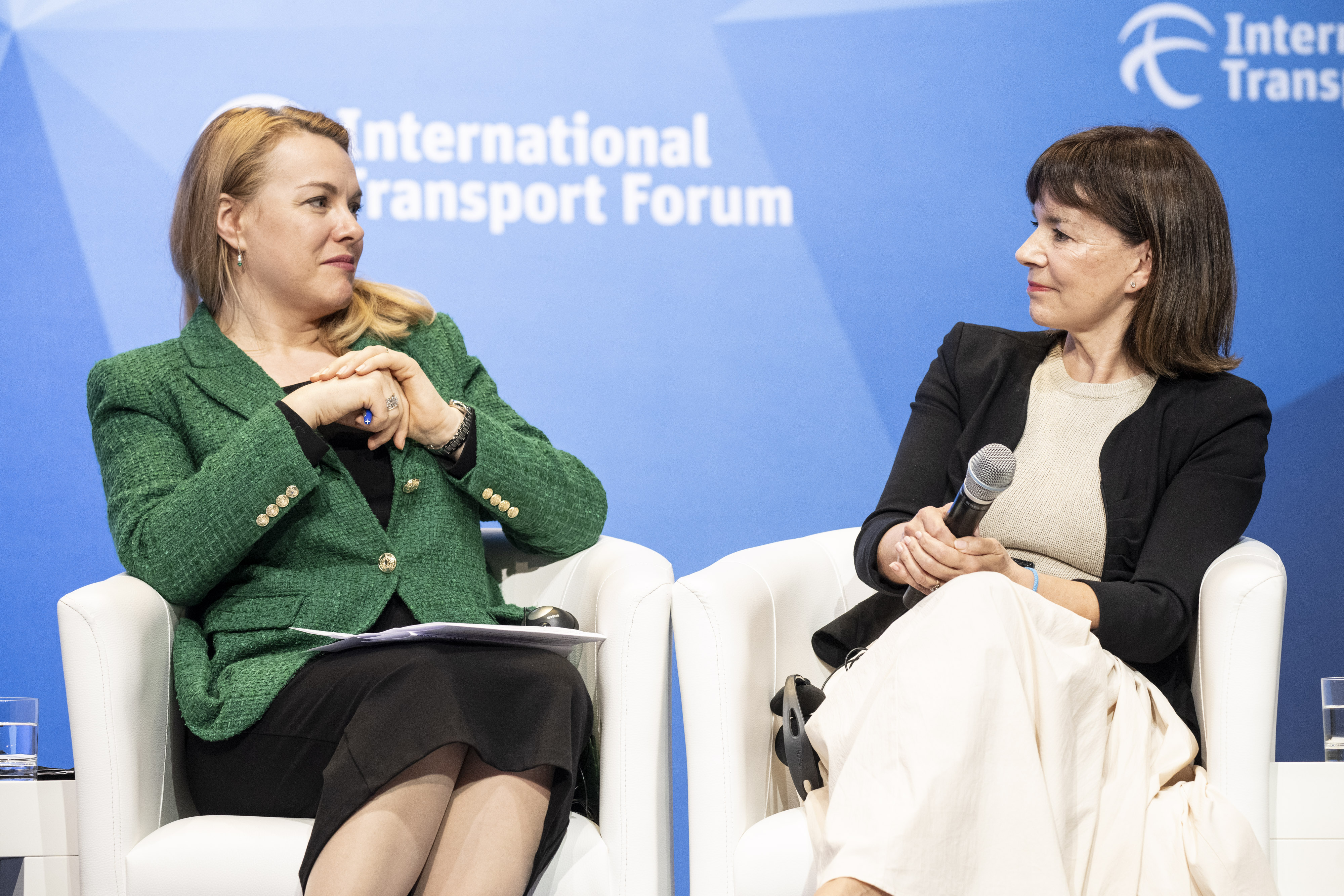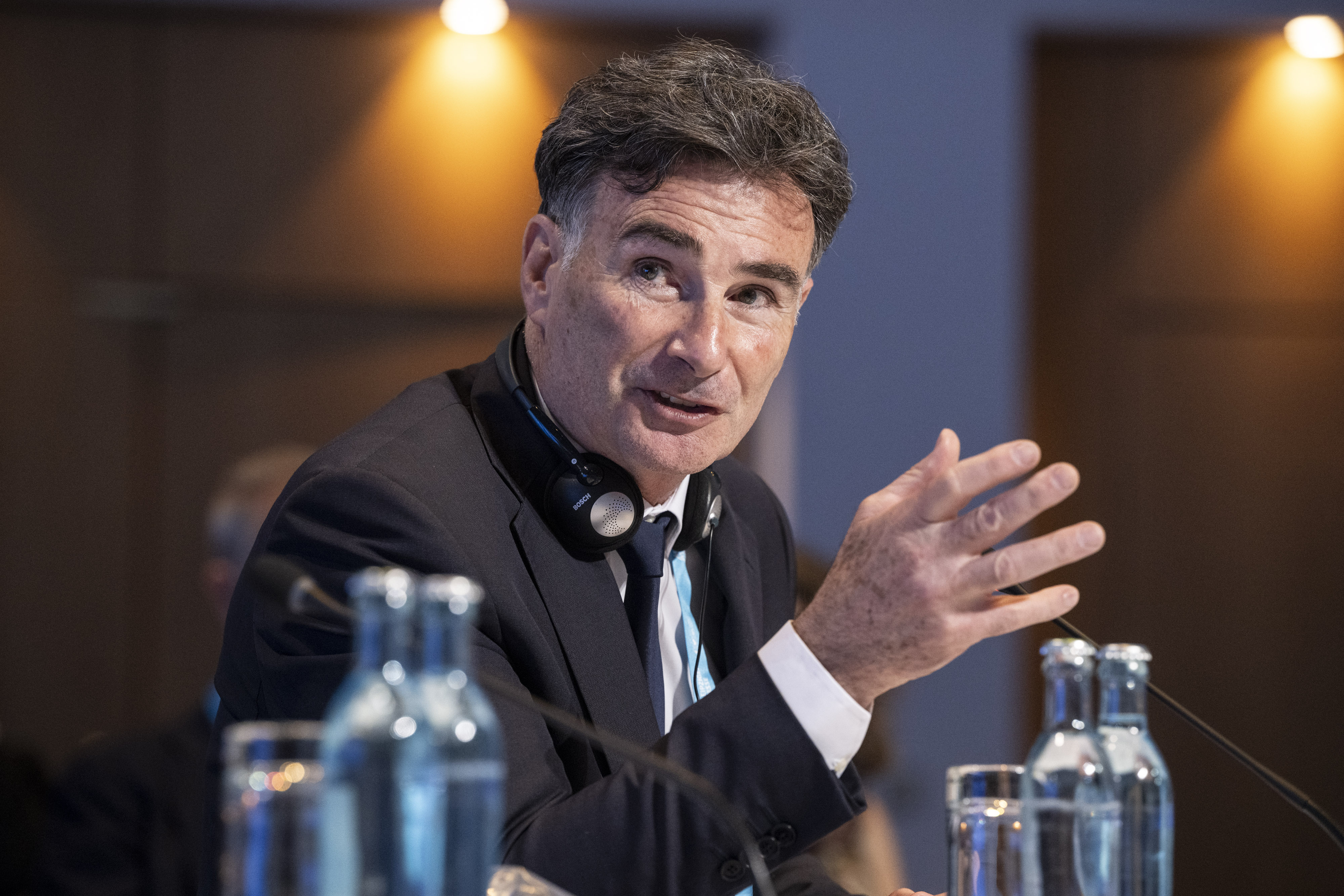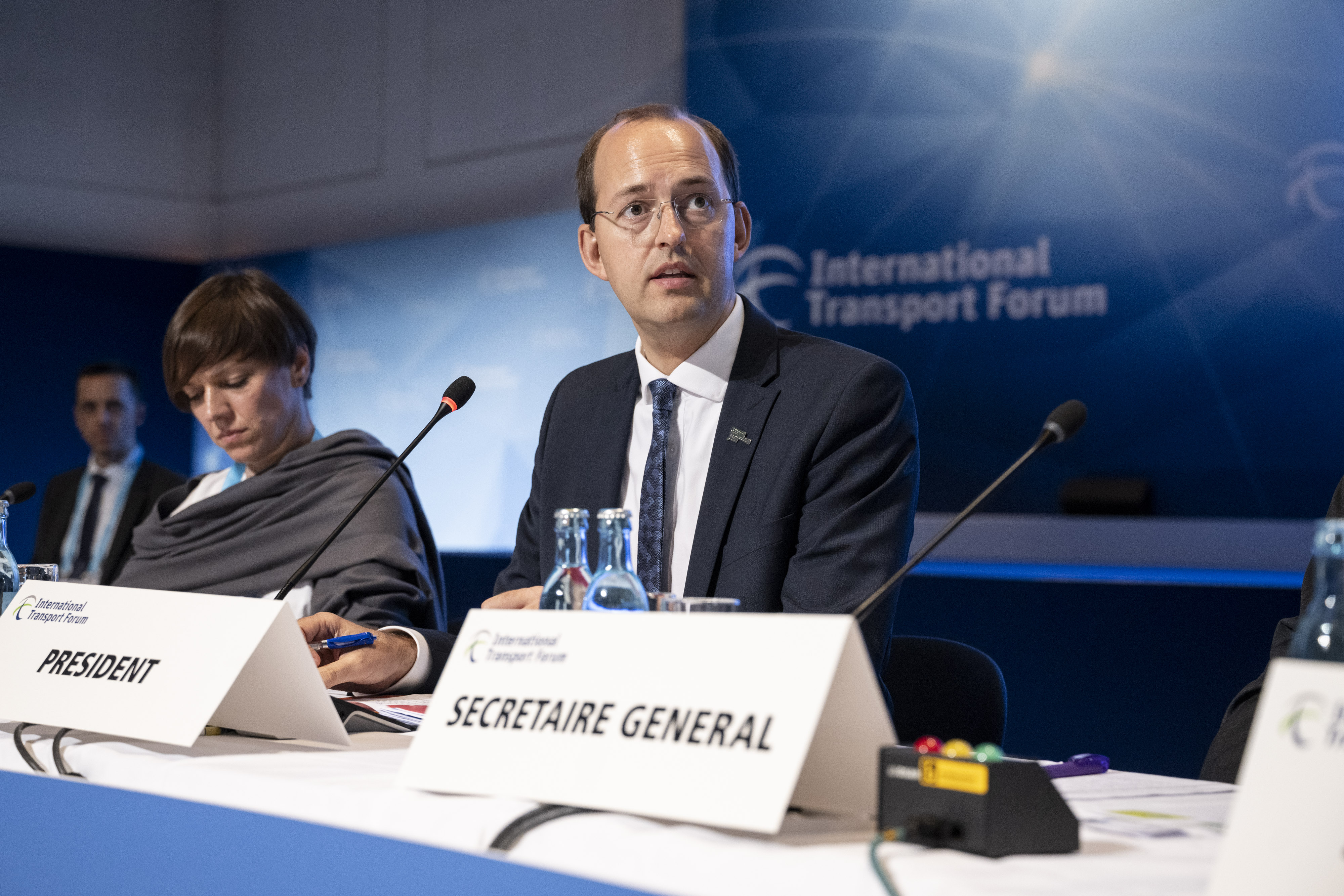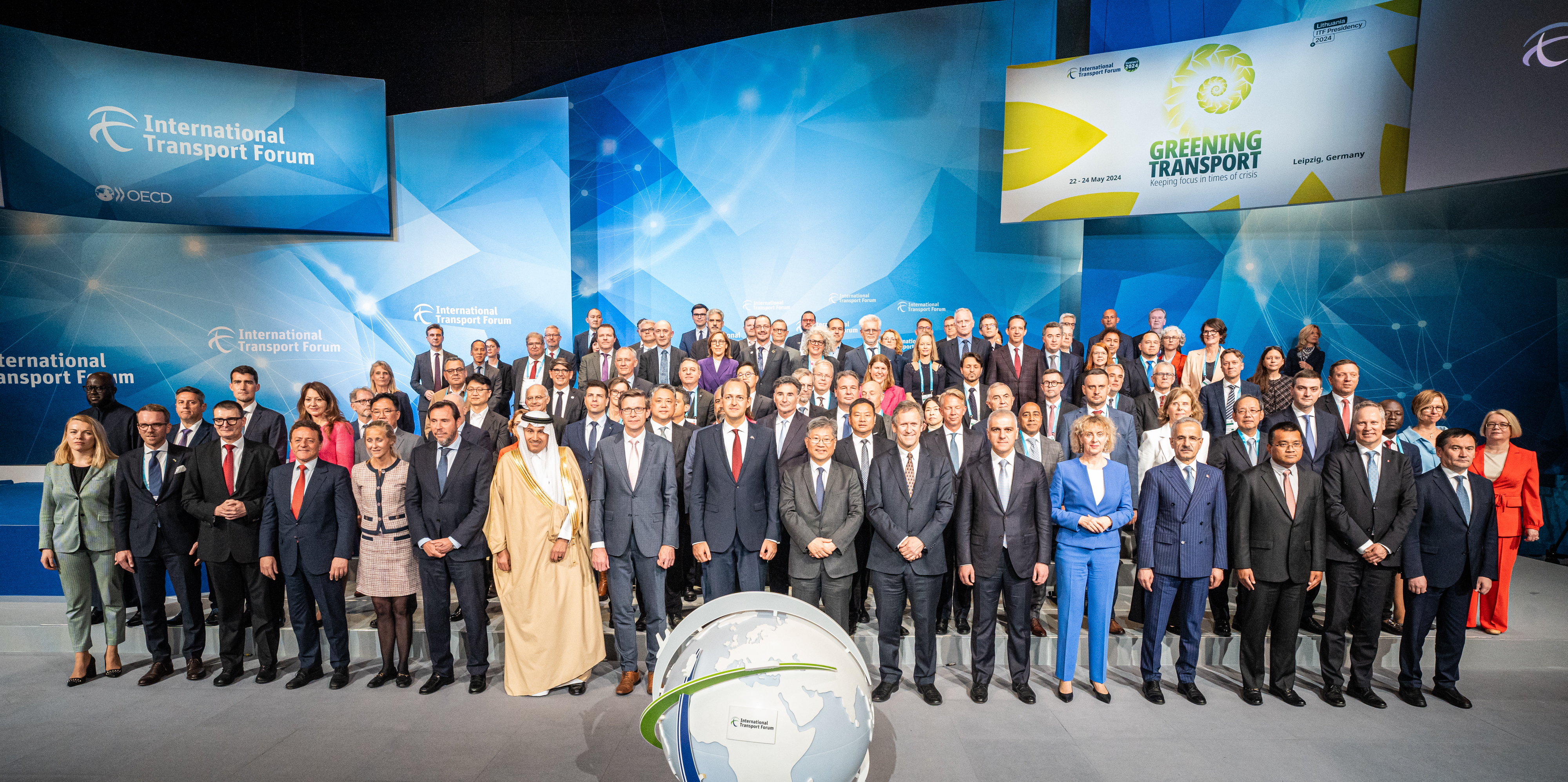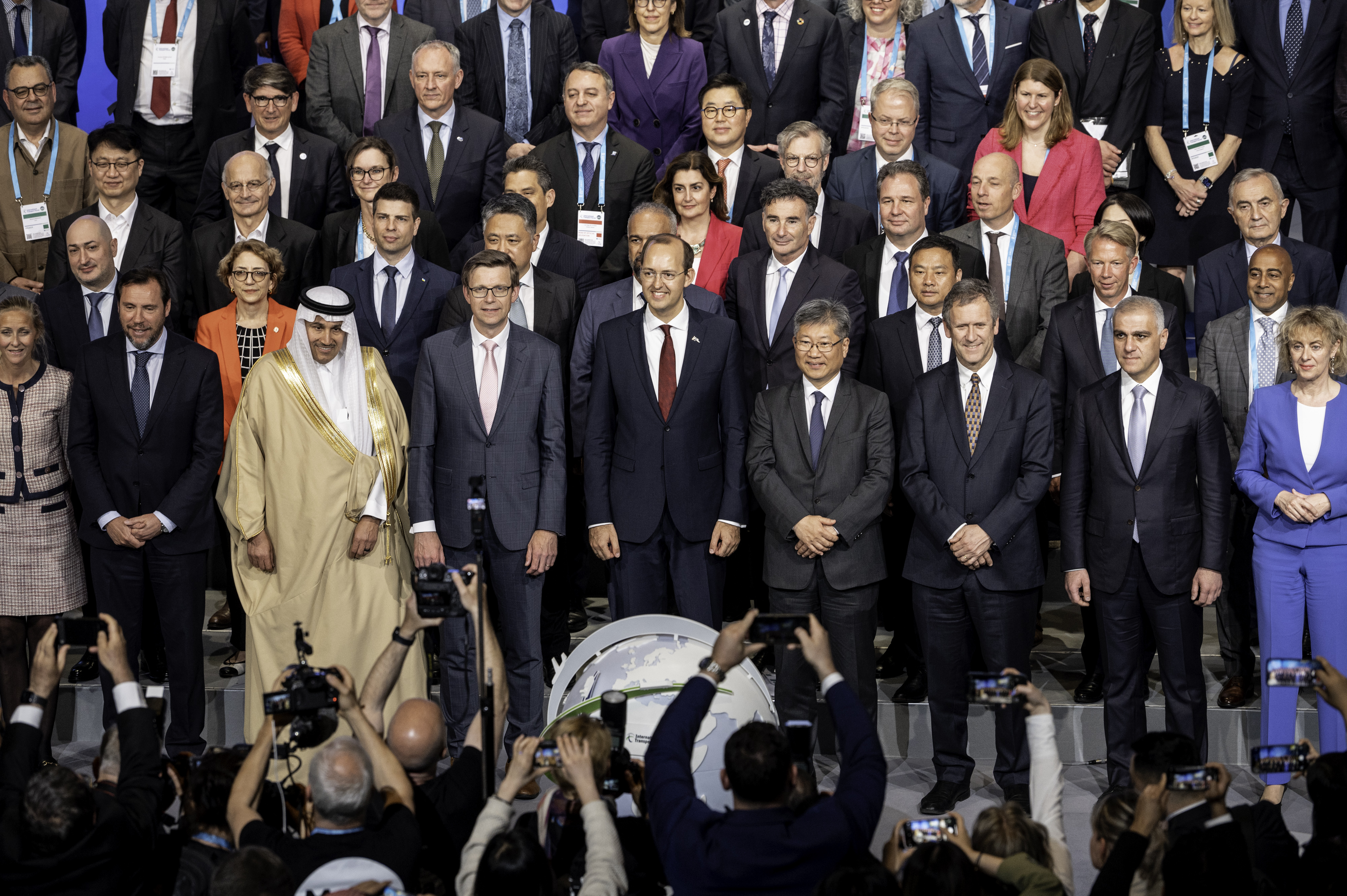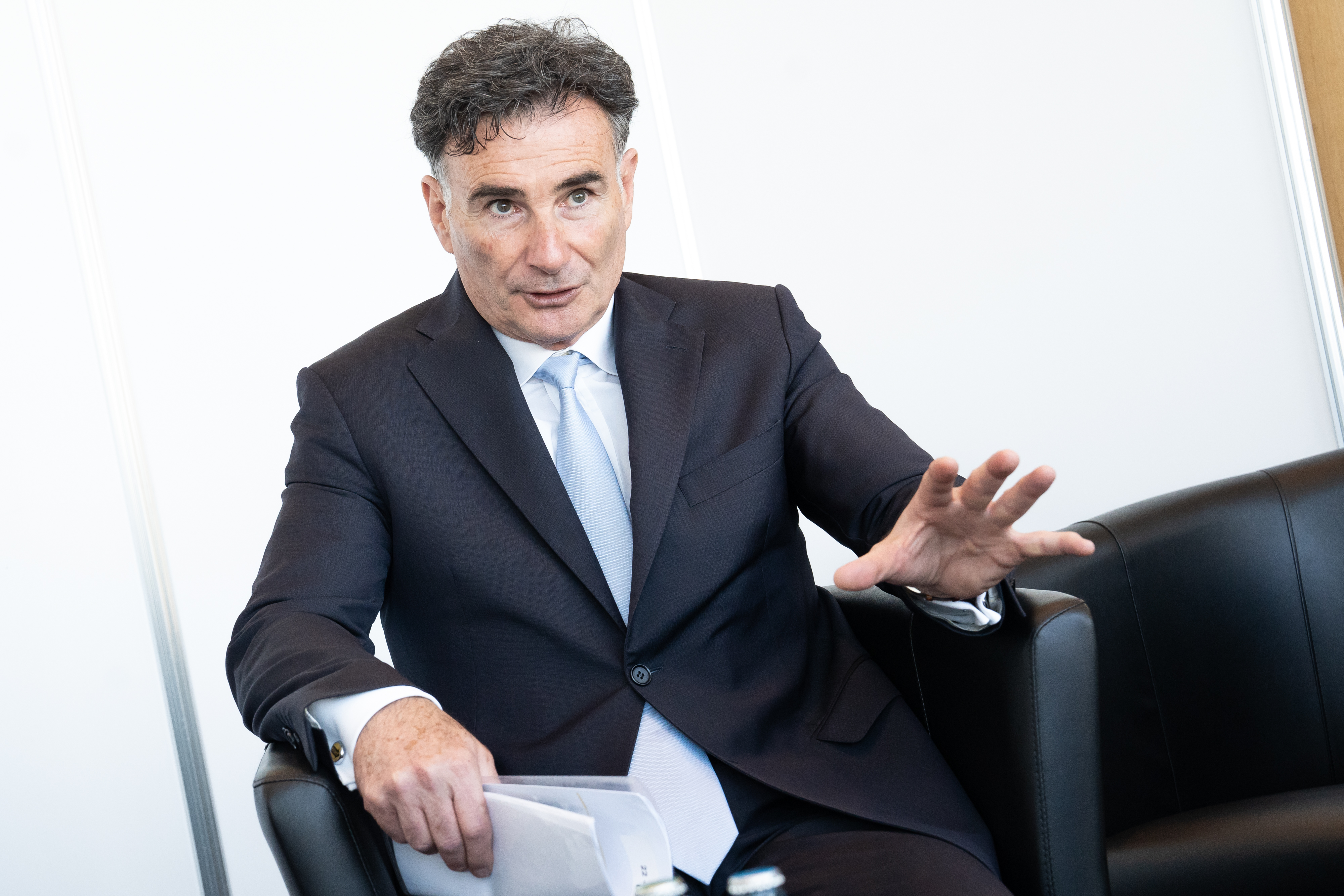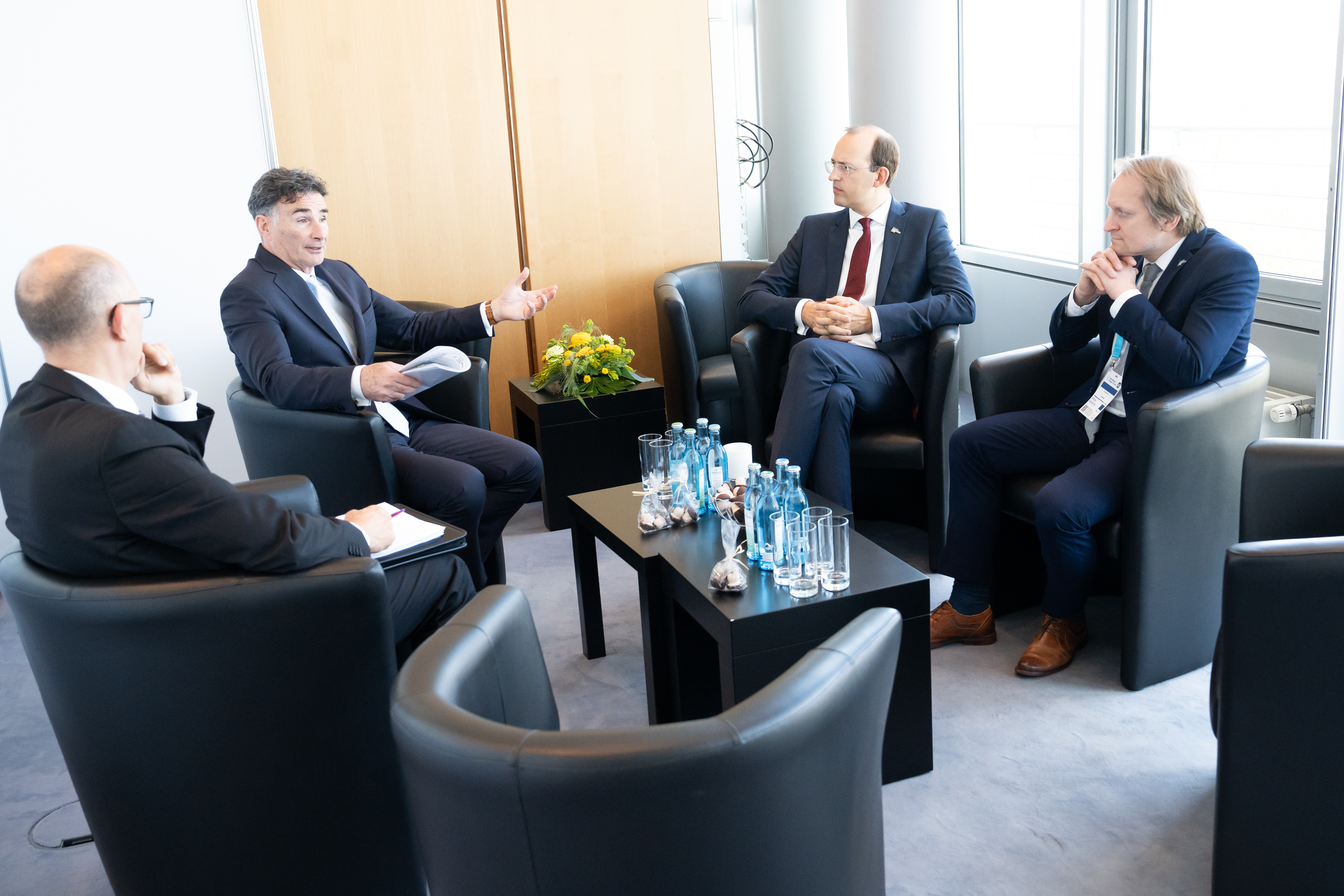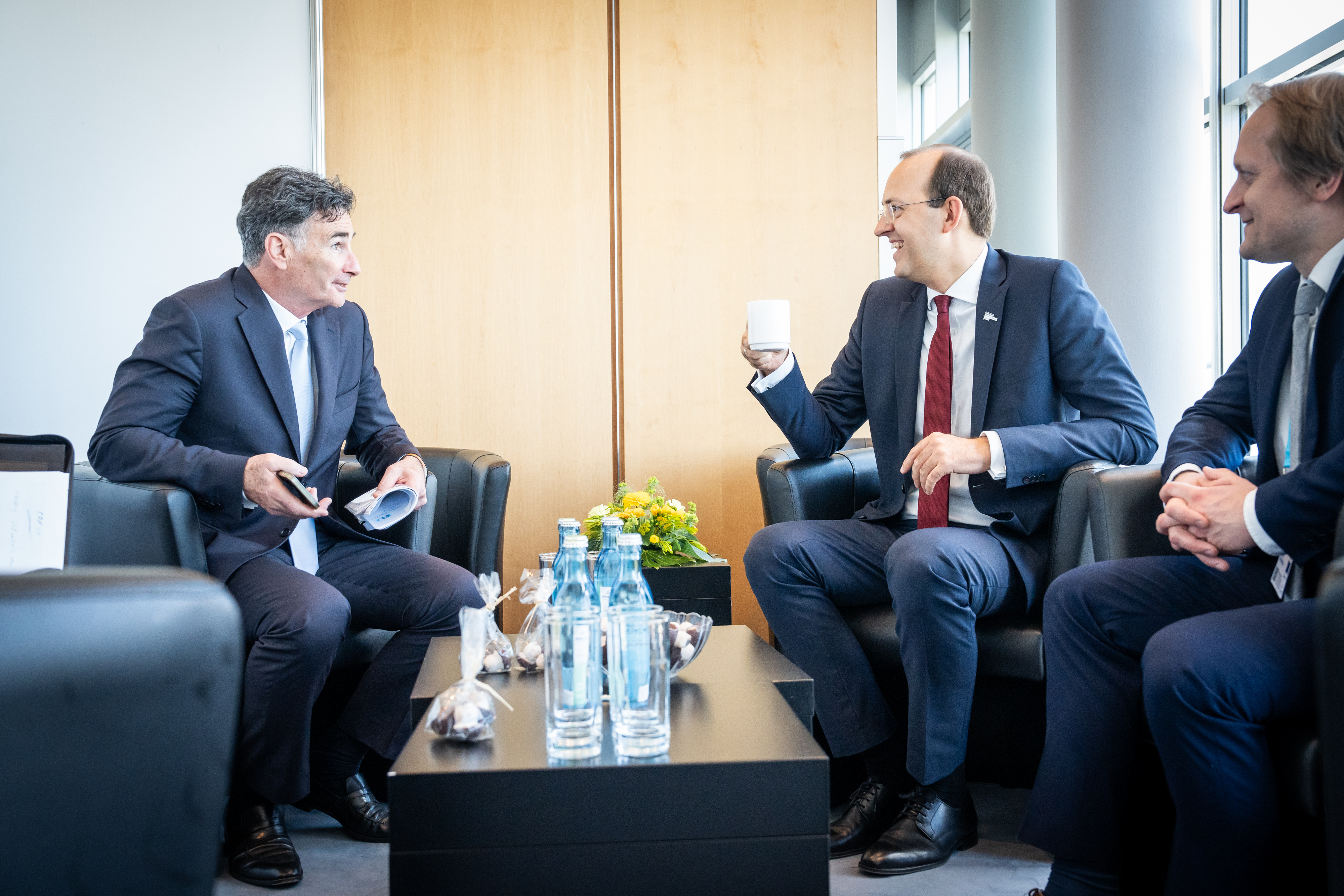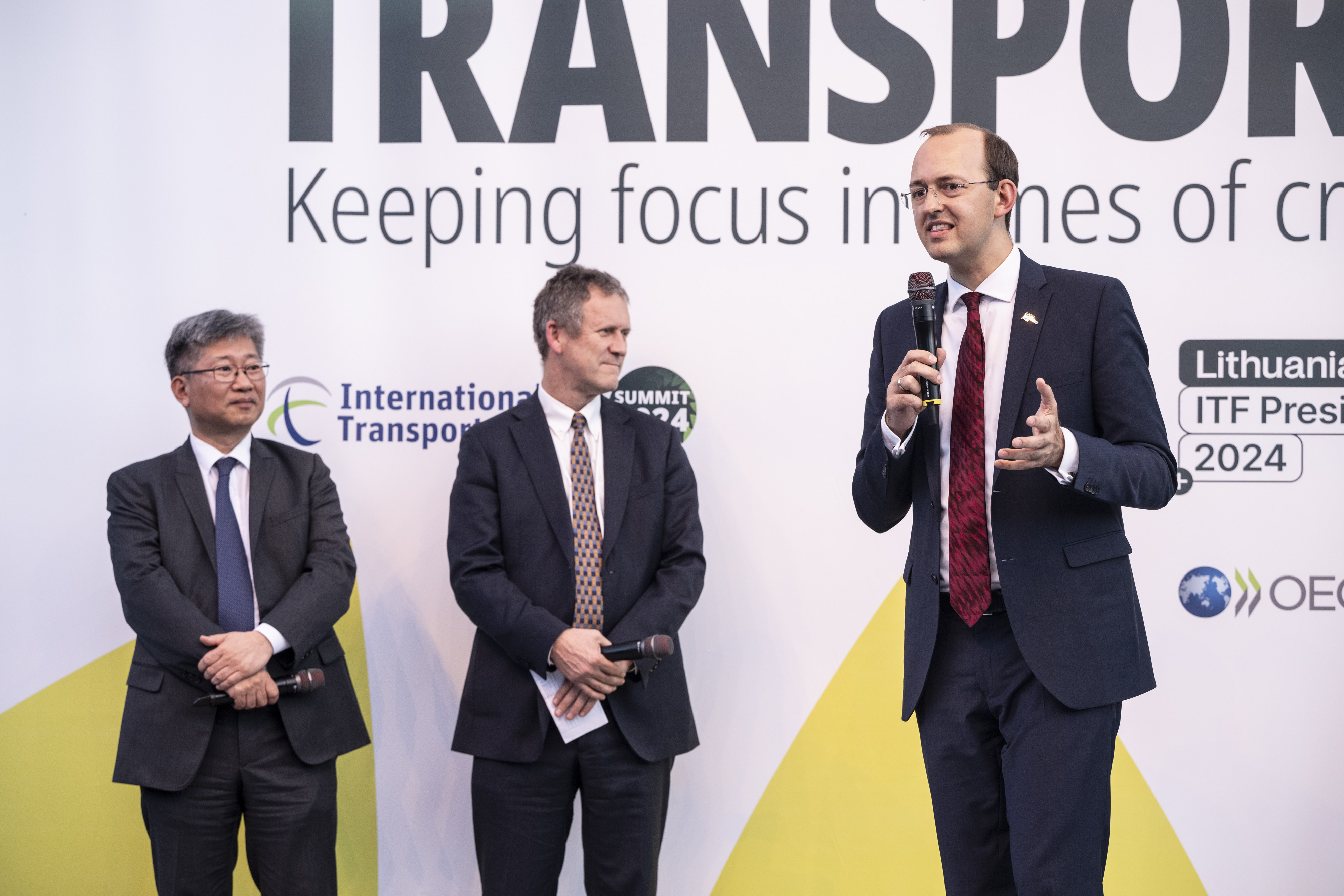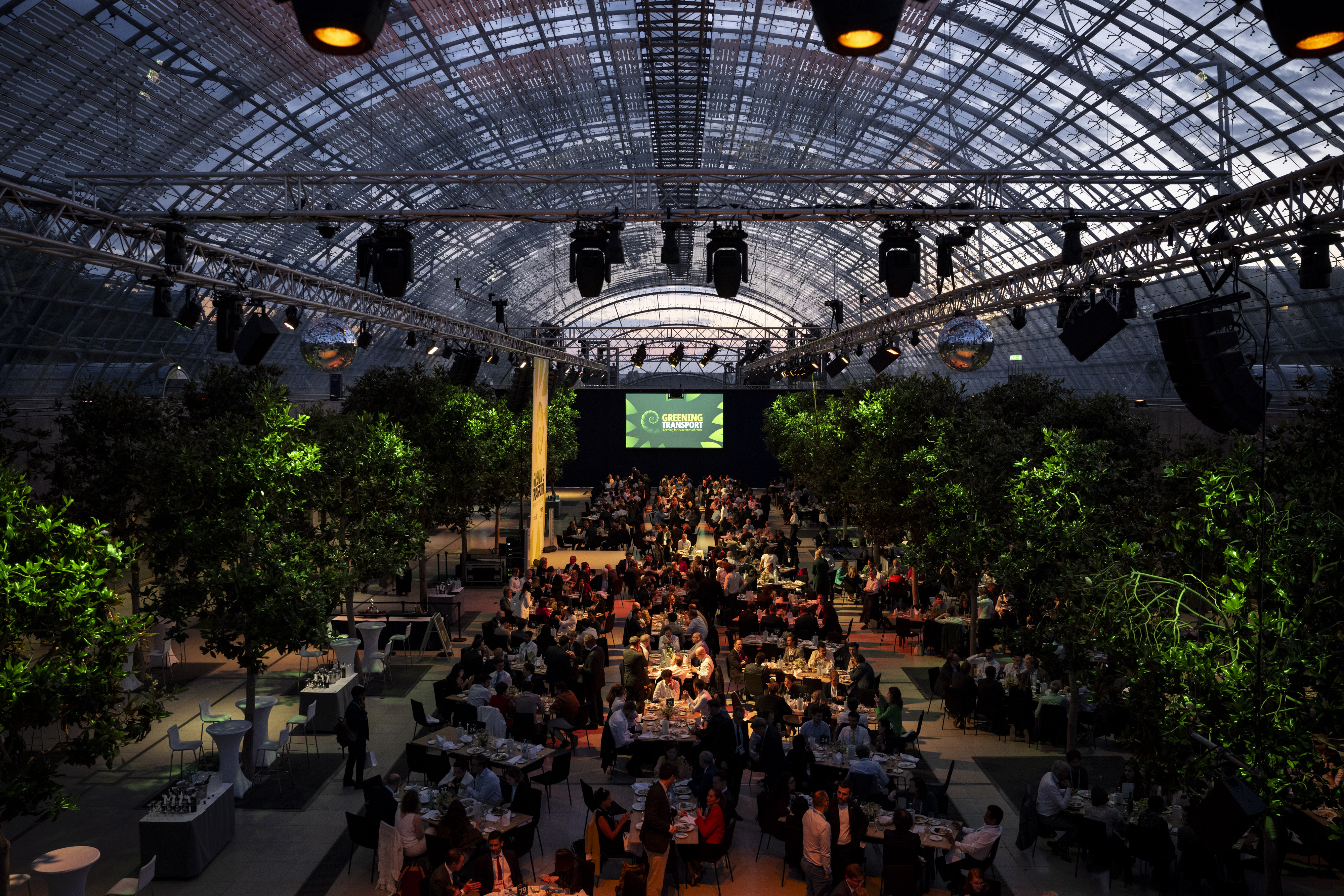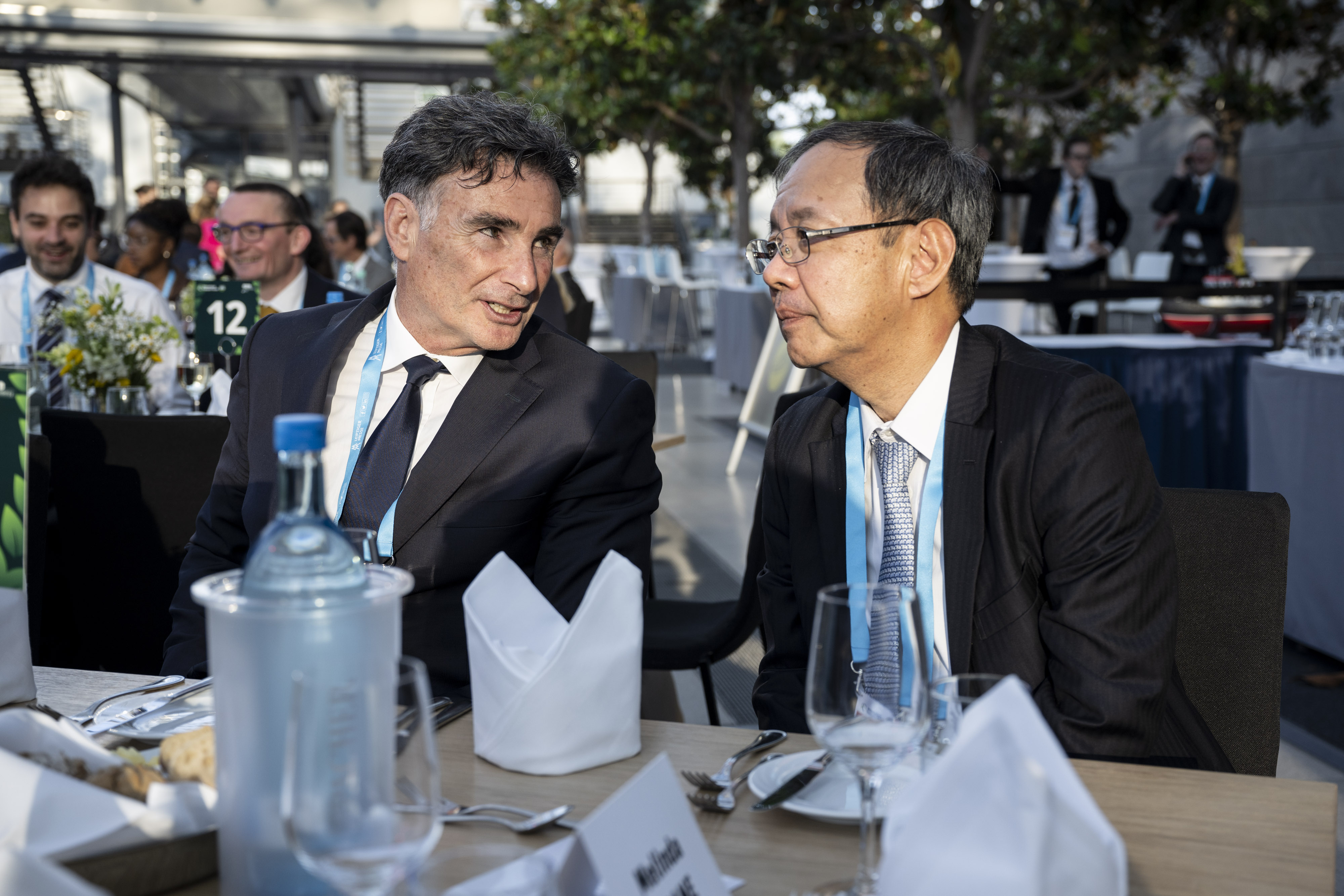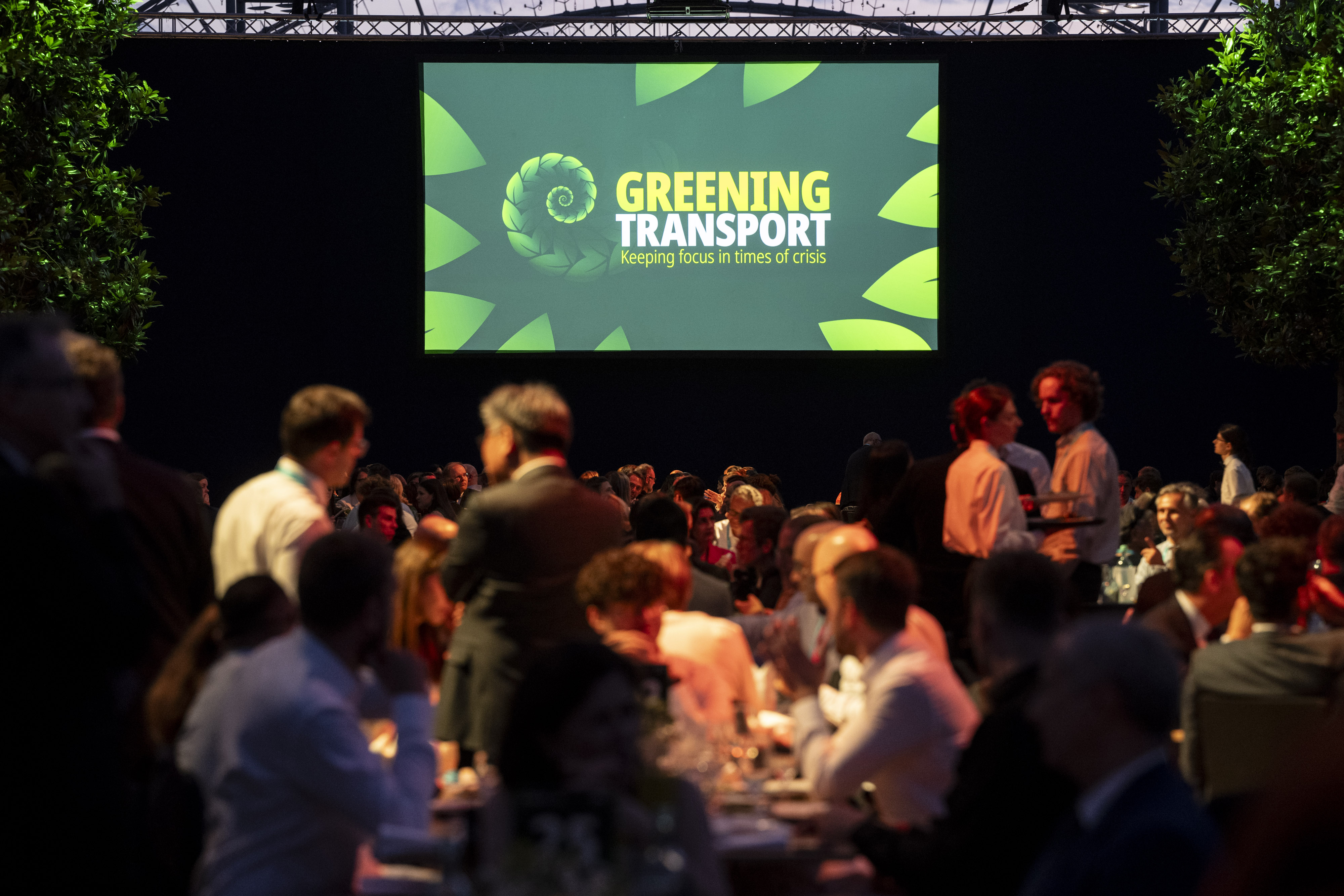The annual ITF Summit of transport ministers took place in Leipzig, Germany, last week. IRU was at the heart of the gathering, putting the voice of the industry on stage and in high-level meetings.
IRU led calls on the need for both resilient and greener transport networks at the annual summit of the International Transport Forum (ITF) in Leipzig, Germany.
More than 50 transport ministers and over 1,200 participants from 80 countries took part in this year’s Summit, under the theme of “Greening transport: Keeping focus in times of crisis”.
IRU Secretary General Umberto de Pretto spoke in the opening plenary, stressing the importance of resilience and a pragmatic approach to road transport decarbonisation using proven efficiency measures available right now.
“Greening the world road transport industry is our mission, and we can’t let crises – however grave – disrupt progress to carbon neutrality. But this will only happen if we reinforce transport resilience by decarbonising pragmatically,” said Umberto de Pretto.

